What is PMR?
What Is PMR?
Physiatry (also called Physical Medicine & Rehabilitation, or PM&R) is a medical specialty focused on helping people recover the best possible function and quality of life after illness, injury, or disability
What Is Physiatry?
- It treats conditions that affect movement, strength, sensation, coordination, or other physical functions. This can include problems of the brain, spinal cord, nerves, muscles, bones, tendons, ligaments, etc.
- The job is not usually about curing disease by surgery. Instead, it's about restoring or optimizing function, reducing pain, and helping people do the things they want or need to do in daily life.
- Physiatrists are physicians who have completed medical school and then special training in PM&R.
Maximize Independence
Enabling you to participate in everyday tasks: such as bathing, dressing, walking, and other activities of daily living (ADLs).
Prevent Further Disabilities
Improve balance and coordination to reduce the risk of injury.
Improve Quality of Life
Through therapy we work to improve functionality to enjoy time with family, work, social events, and hobbies.
Reduce Pain
Improve balance and coordination to reduce the risk of injury.
Through multiple methods, including strength training, improved movement, improved flexibility, non-pharmacological interventions, and medication management
How and Where Physiatrists Work
Settings
Hospitals (inpatient rehab units), outpatient clinics, long‐term care, community rehab, and skilled nursing facilities
As Team Leaders
They coordinate a team of health professionals — physical therapists (PT), occupational therapists (OT), speech therapists, respiratory therapists (RT), nurses, psychologists, social workers, and case managers.
Treatments May Include:
Therapeutic Exercises
with mobility training
Use of Assistive Devices
including braces, walkers, crutches, wheelchairs, and other devices as needed
Medication for Symptoms
including pain, sleep, appetite, spasticity, and others
Injections
for pain and to improve movement
Electro-diagnostic tests
to understand nerve and muscle ability
Guidance
on what to expect when you go home, and on what equipment will be needed. Caregiver training is also included.
What Kinds of Conditions Are Treated?
Physiatrists see a broad variety of patients, such as those with:
Brain Injuries
(from trauma or stroke)
Spinal Cord Injuries
Musculoskeletal Problems
(backs, shoulders, knees, etc.)
Nerve Disorders
(peripheral neuropathy, carpal tunnel, etc.)
Amputations
Chronic Pain
Problems with Movement
balance, or coordination
Medication Management
Activities of Daily Living (ADLs)
Why It’s So Important
Many people don’t fully return to their pre‐injury or pre‐illness condition; physiatry is about making the best recovery possible, not necessarily perfection. Physiatry tries to bridge the gap between acute medical treatment (like surgery or emergency care) and long‐term function in daily life. It’s interdisciplinary: success often depends on collaboration among medical, physical, occupational, and other therapies.
Working with Physiatry
We’ve included a few examples to show what it’s like to work with a physiatrist, highlighting how they help patients regain function and independence.
Stroke Recovery
A patient has a stroke and loses movement in one side of the body.
- The physiatrist leads a rehab team that includes physical therapy for walking, occupational therapy for relearning daily tasks like dressing, and speech therapy for communication.
- They may prescribe medication to reduce muscle stiffness or pain.
- The physiatrist coordinates care so the patient regains independence, perhaps learning to walk with a cane or adapt to using one hand.
Spinal Cord Injury
Someone in a car accident has a spinal cord injury and is paralyzed from the waist down.
- The physiatrist helps manage complications like bladder issues, muscle spasms, and pain.
- They introduce adaptive equipment such as a custom wheelchair.
- Therapy focuses on strengthening the upper body so the person can transfer safely from bed to chair, drive with hand controls, and live independently.
Sports Injury
A young athlete tears their ACL and undergoes surgery.
- The physiatrist oversees the rehab plan after the orthopedic surgeon’s work is done.
- They coordinate therapy for strength, balance, and safe return to sports.
- They also check for long-term joint health to reduce the risk of arthritis or reinjury.
Amputation
A patient loses a leg due to complications from diabetes.
- The physiatrist helps with wound healing, pain management, and preparation for a prosthetic leg.
- They work with prosthetists to fit the device and with therapists to teach the patient how to walk again.
- They also guide emotional adjustment and long-term health strategies.
Chronic Back Pain
A person develops disabling back pain after years of heavy labor.
- The physiatrist evaluates the cause using imaging and nerve tests.
- Instead of immediately turning to surgery, they may recommend physical therapy, targeted injections, or lifestyle modifications.
- The goal is to reduce pain and restore mobility so the person can return to work or daily activities.
What Our Patients Are Saying
